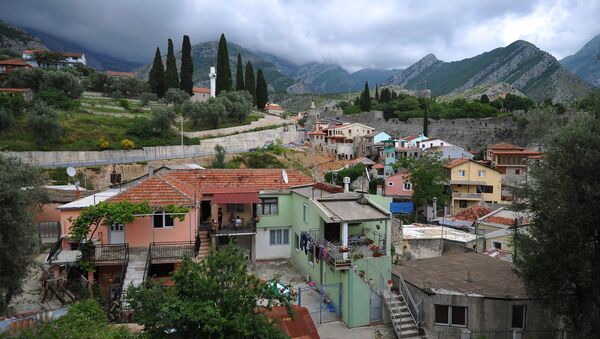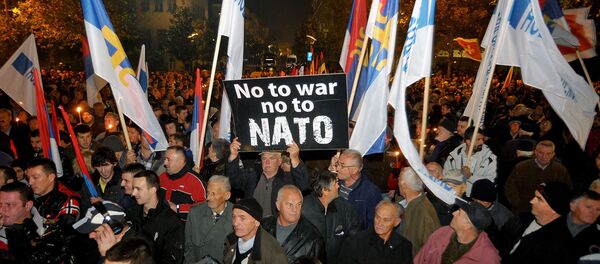MOSCOW (Sputnik) — On Tuesday, Brussels and Podgorica opened negotiations on two new chapters: on free movement of goods and regional policy, and coordination of structural instruments. This brought the total number of open chapters to 28 out of 35. The accession conference also provisionally closed negotiations on the third chapter for external relations.
"In my opinion, the general speed of Montenegro’s EU integration is slow. One of the reasons for this situation is that the EU does not have a clear timeline for the Enlargement. I hope that in the concluding remarks of the Bulgarian Presidency of the Council of ministers in July 2018, such a framework, for the accession of Montenegro… will finally be established," Kouroumbashev said, asked about the process of EU-Montenegro talks, as next week will commemorate the fifth year of negotiations.
He also praised Podgorica for implementing the reforms needed to join the European Union, but was hopeful the Montenegrin opposition would stop boycotting the parliament. Lawmakers from Montenegrin opposition parties have been boycotting parliamentary sessions, demanding for a new date for parliamentary elections to be set. Previously, the opposition proposed the the vote be held alongside the presidential elections, scheduled for March 2018.
According to the requirements for EU membership, those countries wanting to join the European Union must undergo a two-step process. Firstly, the country must prove their ability to comply with all the standards and rules of the Union. Secondly, said country must receive the consent of all the EU institutions and member states, as well as of their citizens, either through their national parliament or by referendum.
On June 12, EU Commissioner for European Neighborhood Policy and Enlargement Negotiations Johannes Hahn said expansion of the European Union with one or several of the Western Balkans states would be possible only under the next mandate of the European Commission, set to begin in 2019. Hahn reasoned this by saying the accession talks with Albania, Macedonia, Serbia and Montenegro, which hold status of candidate states, would not be concluded by 1.5 or two years before the end of the current mandate for the accession to take place as required by EU law.




